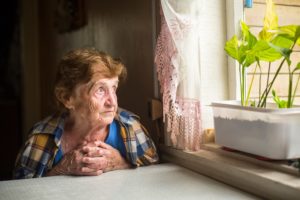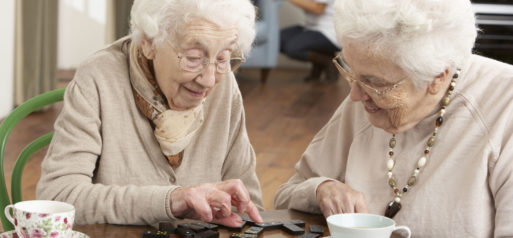
Credit: ssmaps.com
As the world’s population ages, the number of elderly Americans who live alone has increased every year. Today, about one in three of the 46 million seniors who live in the community lives alone. That number increases to one in two in people over the age of 85. And while living alone does not necessarily equate to feeling lonely or isolated, research shows that loneliness in the elderly is a growing public health concern.
Loneliness, which has been described as the “subjective feeling of isolation, not belonging, or lacking companionship,” has profound effects on health. In a recent study published online in Perspectives on Psychological Science, social isolation, loneliness and living alone all correlated with a significantly increased risk of death. Dr. Carla M. Perissinotto, who practices geriatric medicine at the University of California in San Francisco, calls the issue a “critical” public health problem. “It is no longer medically or ethically acceptable to ignore older adults who feel lonely and marginalized,” she added in a statement to the New York Times.

Credit:sciencemag.org
Here in the United States, health officials have been slow to respond to the growing problem of loneliness in the elderly. But in Great Britain, where the number of seniors who live alone is about the same as in the U.S., public awareness has blossomed in recent years. The result has been a surge in efforts to help seniors connect with another person in a meaningful way. One such effort, a 24-hour call center dubbed The Silver Line Helpline, receives up to 10,000 calls from seniors every week.
Other efforts include the London-based Campaign to End Loneliness, a nonprofit that has been reaching out to seniors and working to increase awareness of the effects of loneliness since 2011. Another charity, Open Age, coordinates activities such as sewing circles, computer classes, political forums and book clubs. Its staff even visits people in their homes to try to encourage them to leave the house. Yet another, Men’s Shed, brings older men together in over 300 woodworking shops throughout England, Scotland and Ireland.
Loneliness Activates the Stress Response
Once thought of as a purely psychosocial issue, loneliness has now been tied to the body’s physiological “stress response.” According to John T. Cacioppo, a professor of psychology at the University of Chicago, who has been studying loneliness for two decades, loneliness increases the body’s production of cortisol, a powerful hormone that is activated in response to threat. Overstimulation of cortisol can raise blood pressure, impact vital organ function and impair the body’s immune response.

Credit: seniorcitizenobserver.com
Other research has tied loneliness to dopamine receptors in an area of the brain known as the dorsal raphe nucleus, or D.R.N. (Dopamine is a brain chemical that is strongly linked to pleasure and reward.) In a study published in the journal Cell, researchers showed that these receptors were relatively quiet in mice who were housed with other mice. But when the mice were separated for even a short period of time and then reunited, there was a surge of activity in the dopamine receptors in the D.R.N.
“This is the first time we’ve found a cellular substrate for this experience,” said Dr. Keith Tye, an assistant professor at the Picower Institute for Learning and Memory at the Massachusetts Institute of Technology, and one of the study’s lead authors. “And we saw the change after 24 hours of isolation.”
Will the U.S. Step Up?
While the United States has been slow to respond to mounting evidence that loneliness and isolation are serious concerns, some efforts are being made to stem the tide. Dr. Perissinotto, for example, is studying the impact of a San Francisco based initiative, The Friendship Line. Run by the Institute on Aging, it is both a loneliness and suicide prevention hotline that accepts calls 24 hours a day.
Nevertheless, it looks like we’ve still got a long way to go.

 Confronting Loneliness in the Elderly
Confronting Loneliness in the Elderly



 “As Tears Go By” by Marianne Faithfull
“As Tears Go By” by Marianne Faithfull
 “The Sea” by John Banville
“The Sea” by John Banville














